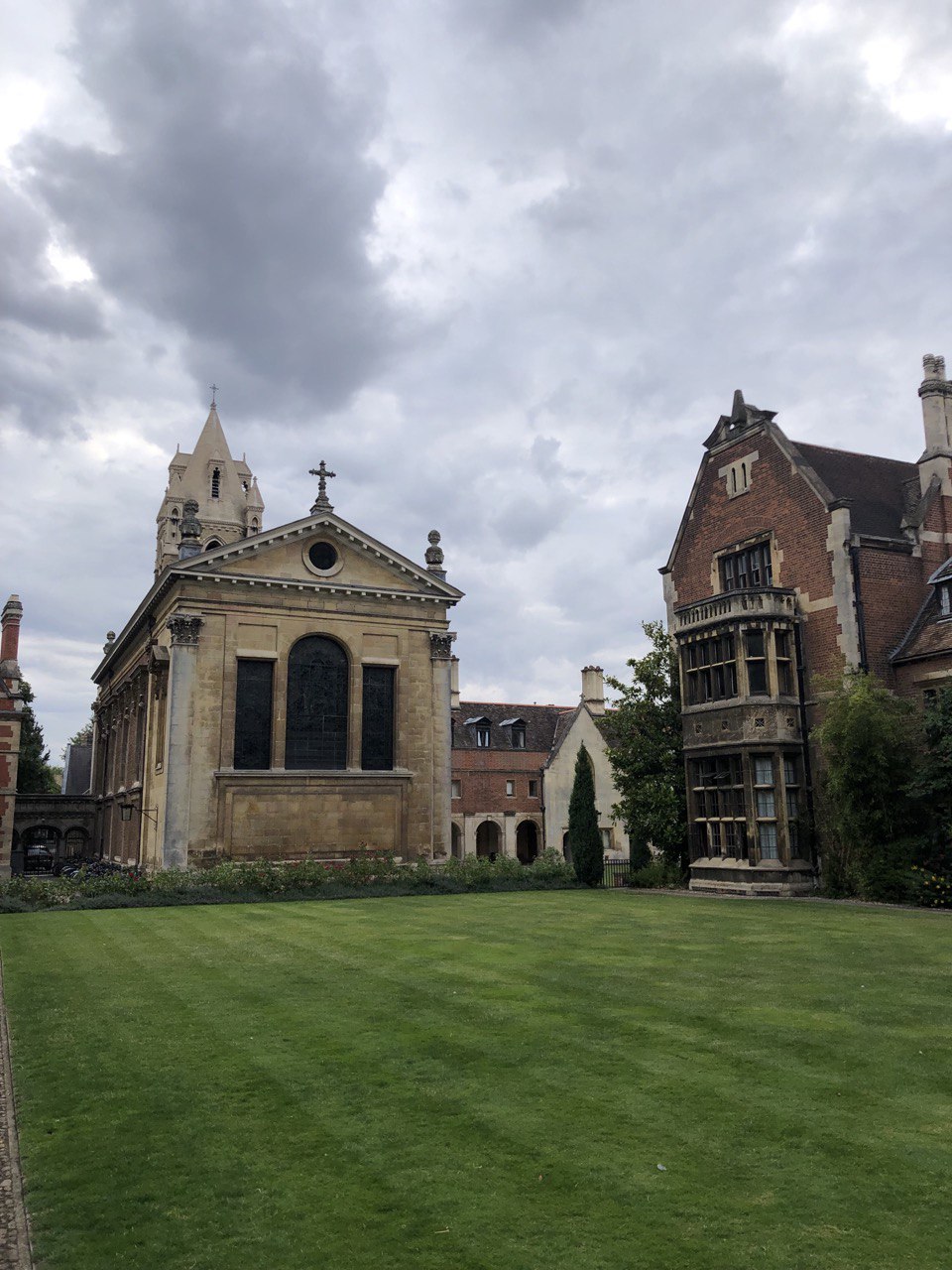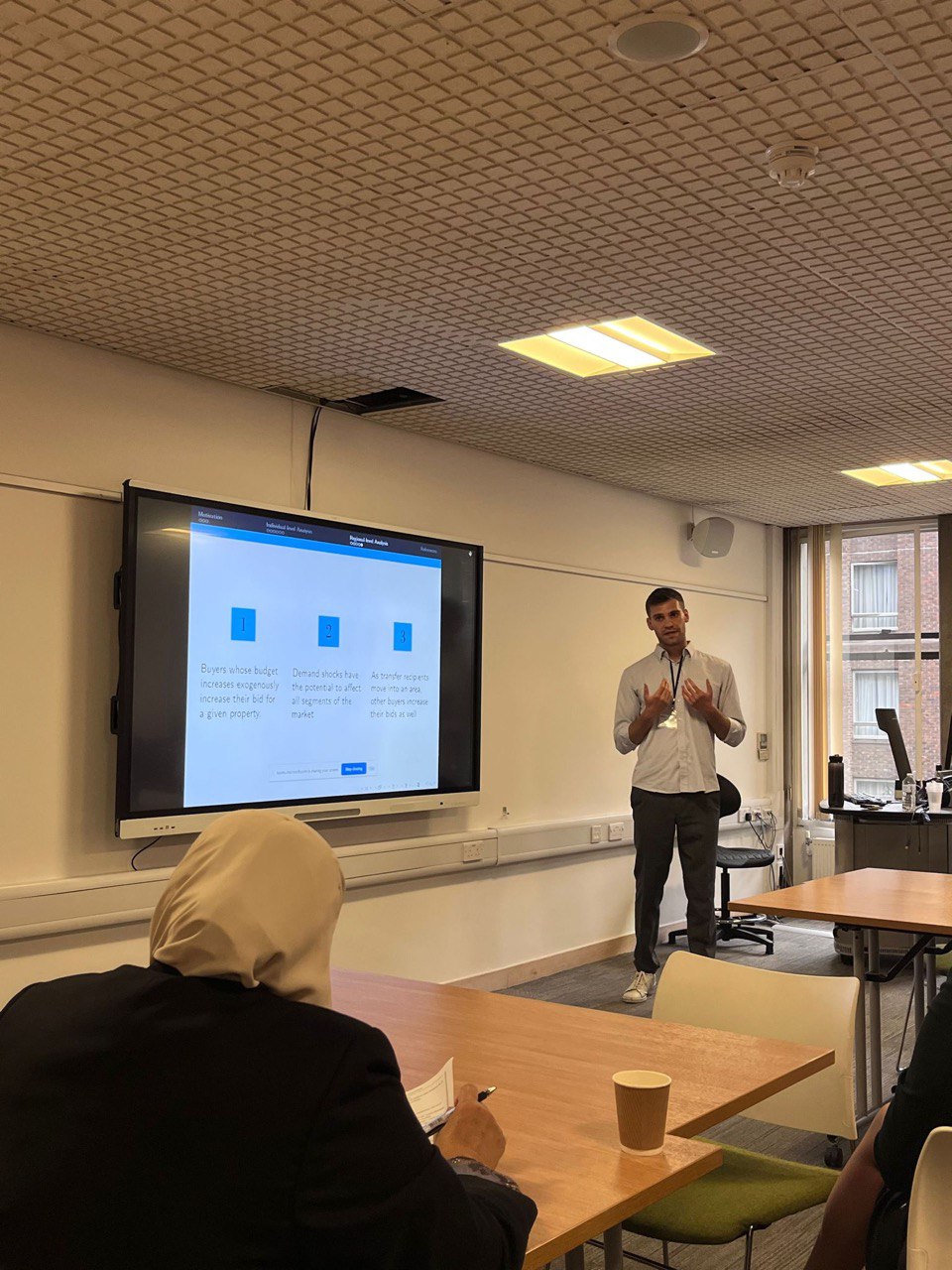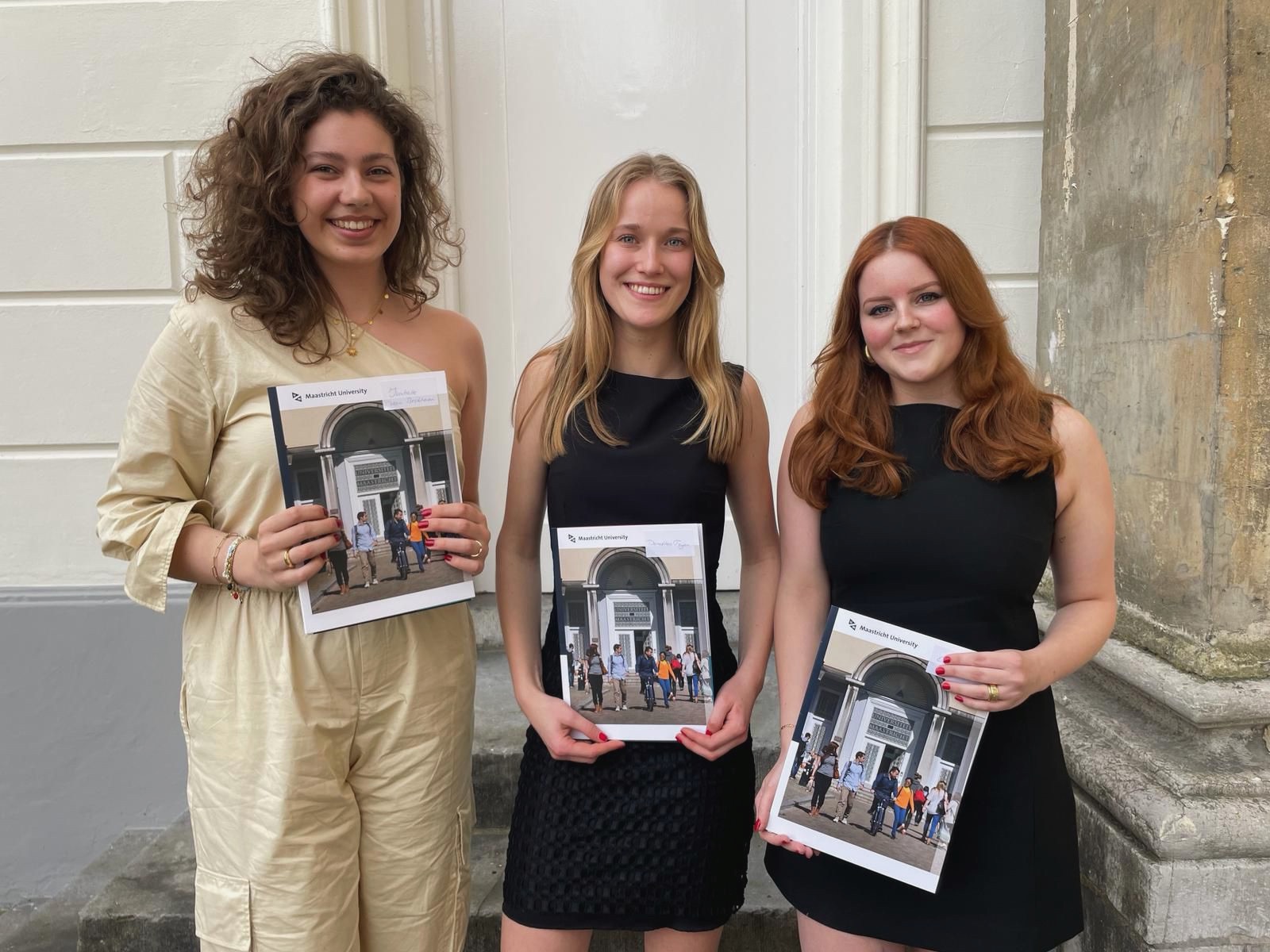A Conference Trip to the UK
Participating in conferences is perhaps the most exciting part of a PhD journey. This July, I had the chance to do so twice. First, I joined the annual meeting of the European Real Estate Society in London, followed by the international conference of the American Real Estate and Urban Economics Association in Cambridge.

Abstract:
Do homebuyers change their bidding behavior as their available budget increases? We study this question, leveraging an unanticipated tax-exemption policy in the Dutch housing market. Results from an instrumental variables estimation reveal that buyers raise their bid by €0.08 for each euro of transfer that they receive. In addition, we find evidence for a spillover effect, whereby even those homebuyers who were not directly affected by the policy tend to increase their bids, due to an increase in competition.

It was a chance to connect with academics and practitioners from the field of Real Estate and Urban Economics, and to be inspired by the atmosphere that surrounds these impressive places, Cambridge in particular. Most importantly, however, it was a chance to present my first paper, a joint project with Jaap Bos and Nils Kok. In it, we take a close look at a policy that has caused lots of of debate in the Dutch housing market: the „Jubelton“. First introduced in 2013, this policy granted a tax exemption on housing-related expenditures, such as mortgage pre-payments, home improvements or purchases. Our findings suggest that this increased competition among homebuyers, thereby tightening the market and potentially contributing to the ‚overbidding‘ phenomenon that has kept those in search of new home awake at night in recent years.
Before and after giving my talk, I tried to attend as many presentations from other researchers as possible. The topics of sustainability and resilience in housing markets ran like a threat through both conferences - especially against the backdrop of climate change. For instance, one study addressed the issue of flood insurance for residential and commercial properties, which is prone to become a major obstacle for homeowners in years to come. Another study investigated how local markets are affected by closures of large, heavily polluting, coal power plants.
Importantly, many housing market researchers also study sustainability and resilience from a social perspective, especially in view of the current housing affordability crisis. Here, I was most impressed by an analysis of rent control policies in Portugal. Going beyond its immediate effect on affordability and housing supply, this study highlighted the adverse labour market consequences for people who have to move out of rent controlled units and therefore move to poorer neighborhoods. For me, this was a great application of what economists like to call a general equilibrium view: to think of large-scale issues and their potential solutions in a holistic way, instead of merely focusing on immediate (and sometimes obvious) relationships between cause and effect.
All in all, I see it as an enormous privilege to be able to attend events like these. After working for months and months, oftentimes with very little outside feedback, talking to likeminded people in such a setting adds new perspectives on existing projects - and provides food for thought for new ones.

Also read
-
The Honours programme is an extracurricular activity for bachelor’s students in year 2 and 3 to showcase their academic skills and teamwork in a real-life project. We talked to Emma van Straten, a Health Sciences student and Honours alumna who organised an international conference on Lama2 in...
-
The University Council of Maastricht University (UM) is holding a confidential today.
-
The Executive Board Executive Board and the University Council of Maastricht University (UM) met today and discussed both the protests at UM and the underlying issue of international cooperations.

